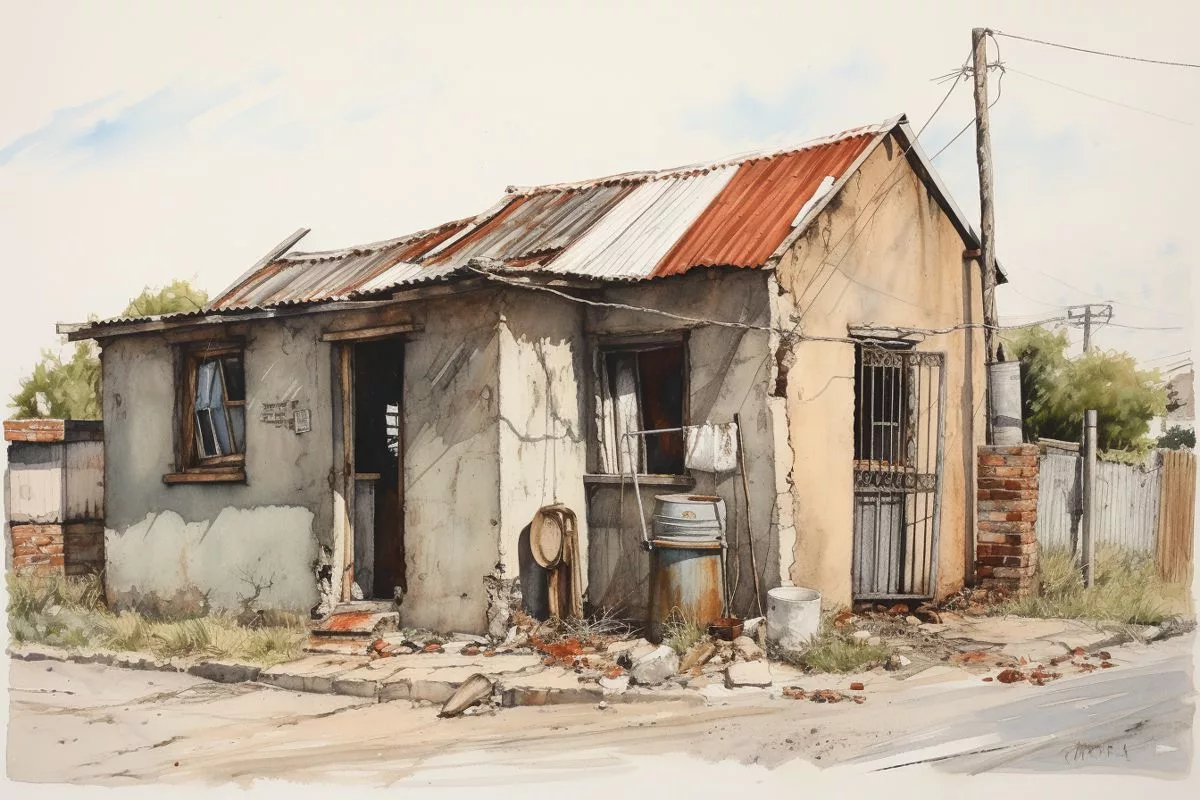Cape Town is facing a housing crisis due to budget cuts of over R107m, with significant reductions in funding for informal settlement upgrading and urban settlements development. The city is shifting its focus to private sector housing delivery and advocating for a higher share of funding to support its growing population. Despite financial obstacles, Cape Town remains committed to its vision of being a progressive, pro-poor, and pro-growth city.
What is Cape Town’s housing crisis and how are budget cuts affecting it?
Cape Town is facing a major housing crisis as its budget experiences a reduction of more than R107m due to nationwide grant cuts. The funding share has experienced significant cuts with R37m removed from the Informal Settlement Upgrading Partnership Grant and R70m taken from the Urban Settlements Development Grant. In response, Cape Town has shifted its focus to private sector housing delivery and advocating for a higher Equitable Share of funding. Despite these financial obstacles, Cape Town remains devoted to its progressive, pro-poor, and pro-growth vision.
Confronting Housing Budget Cuts in Cape Town
Cape Town is facing an immense challenge as its housing budget experiences a massive reduction of more than R107m due to nationwide grant cuts. The Medium-Term Budget Policy Statement, announced by Finance Minister Enoch Godongwana on November 1, has raised concerns about the repercussions for the city’s most vulnerable residents.
Mayor Geordin Hill-Lewis has criticized the decision, pointing out the Cabinet’s preference to prioritize wasteful government spending over funding for the poor. Instead of cutting government expenditures on areas such as VIP security and bloated national departments, Cape Town’s authorities are now left to deal with the repercussions of these ill-conceived cuts.
Despite the financial limitations caused by corruption, wasteful spending, and a weak economy, Mayor Hill-Lewis remains hopeful about Cape Town’s potential to safeguard pro-poor funding and continue enhancing the lives of its residents. He is confident that the city can improve services in informal settlements, provide housing, and construct vital infrastructure.
The Consequences of Funding Reductions on Cape Town’s Growth
Cape Town’s funding share has experienced significant cuts, with R37m removed from the Informal Settlement Upgrading Partnership Grant and R70m taken from the Urban Settlements Development Grant. These setbacks present a substantial obstacle for the city, which is on the verge of becoming South Africa’s largest urban center, with a population only 100,000 residents below that of Johannesburg’s.
Regardless of the funding reductions, Cape Town intends to persist in advocating for a higher Equitable Share of funding. The city’s expanding population, anticipated to exceed five million in the near future, necessitates essential infrastructure investments to support national growth. Cape Town is responsible for 50% of South Africa’s planned municipal infrastructure spending over the next three years.
Shifting Focus to Private Sector Housing Delivery
In light of the decrease in housing grant funding, Cape Town has redirected its efforts toward facilitating greater private sector housing delivery. Councillor Carl Pophaim, the Mayoral Committee Member for Human Settlements, elaborates on how the city is prioritizing the faster release of land for affordable housing, particularly state-subsidized social rental opportunities.
The MTBPS has confirmed that social housing subsidies will increase, addressing concerns about the subsidies’ inability to keep pace with inflation and the resulting impact on the sector’s feasibility. However, the R107m cuts will still have tangible effects, particularly on the elderly, disabled, and other vulnerable groups who rely on free housing provision from the state.
Despite these financial obstacles, Cape Town’s Human Settlements Directorate has demonstrated its capacity to efficiently utilize grant funds, having spent 99.3% of its R880 million capital budget during the previous fiscal year. Councillor Pophaim vows to persist in advocating for the protection of this funding from additional cuts.
Overcoming Challenges to Build a More Inclusive City
The situation in Cape Town serves as a stark reminder of the difficult decisions government officials must make when resources are scarce. Although the city’s most vulnerable populations are likely to feel the impact of these cuts, Cape Town’s leaders remain devoted to their progressive, pro-poor, and pro-growth vision. By shifting their focus to private sector housing delivery and striving to safeguard essential services, Cape Town aims to surmount these obstacles and continue constructing a more inclusive and affluent city for all its inhabitants.
1. What is the housing crisis in Cape Town?
Cape Town is experiencing a housing crisis due to budget cuts of over R107m, resulting in significant reductions in funding for informal settlement upgrading and urban settlements development.
2. How are budget cuts affecting Cape Town’s housing crisis?
The budget cuts have resulted in a reduction of more than R107m, with R37m removed from the Informal Settlement Upgrading Partnership Grant and R70m taken from the Urban Settlements Development Grant. Cape Town is shifting its focus to private sector housing delivery and advocating for a higher Equitable Share of funding.
3. What is Cape Town’s vision for the future?
Cape Town aims to be a progressive, pro-poor, and pro-growth city.
4. What has been Mayor Geordin Hill-Lewis’s response to the budget cuts?
Mayor Geordin Hill-Lewis has criticized the decision, pointing out the Cabinet’s preference to prioritize wasteful government spending over funding for the poor.
5. What is Cape Town’s plan to address the funding reductions?
Cape Town intends to persist in advocating for a higher Equitable Share of funding and has shifted its focus to private sector housing delivery.
6. What is the impact of the funding reductions on vulnerable groups?
The R107m cuts will have tangible effects, particularly on the elderly, disabled, and other vulnerable groups who rely on free housing provision from the state.
7. How has Cape Town’s Human Settlements Directorate utilized grant funds in the past?
Cape Town’s Human Settlements Directorate has demonstrated its capacity to efficiently utilize grant funds, having spent 99.3% of its R880 million capital budget during the previous fiscal year.
8. What is Cape Town’s goal for the future despite the funding reductions?
Cape Town aims to surmount these obstacles and continue constructing a more inclusive and affluent city for all its inhabitants.








